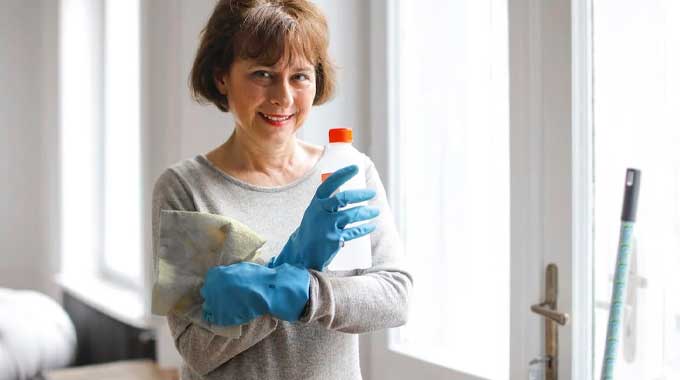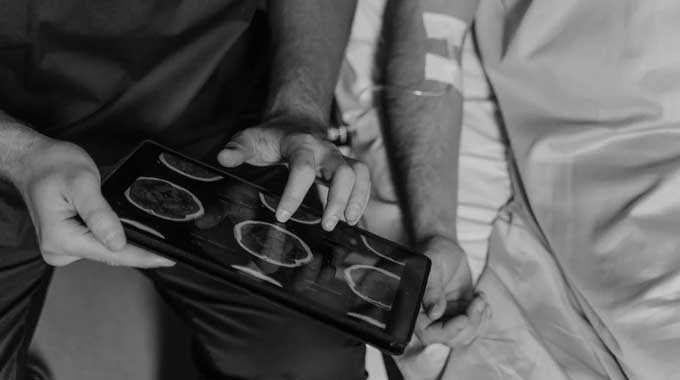Obsessive-compulsive disorder (OCD) is a chronic and common mental health condition that causes an individual to have reoccurring and uncontrollable thoughts (obsessions) and behaviors (compulsions). The symptoms of OCD can negatively impact a person’s ability to function and enjoy life. The different symptoms and their effects have led many OCD patients to question whether the disorder is curable. A range of treatments can be used to help people with OCD to regain their quality of life. Read on to find out more.
What Is Obsessive-Compulsive Disorder (OCD)?
There are two key components of obsessive-compulsive disorder (OCD): obsessions and compulsions. Those diagnosed with this mental health condition experience obsessive thoughts that are unwanted and adverse. These intrusive thoughts can cause people to perform compulsive behaviors in an attempt to relieve the anxiety induced by their thinking. People with OCD can experience one or both of these key components.
The various symptoms associated with obsessions and compulsions interfere with daily life, causing great distress and anxiety. While there isn’t a cure, therapy and other forms of treatment with a mental health professional can effectively treat OCD and help people to manage their symptoms.
OCD Symptoms
Symptoms of OCD can change over time. They can come and go, ease up, or at times, worsen. If you have been diagnosed with OCD, you may notice yourself avoiding situations or events that trigger your symptoms.
OCD typically includes both obsessions and compulsive behavior. However, it is possible to only have one or the other. You may or may not have realized that your obsessions or compulsions are unreasonable or excessive. If they take up a lot of your time and interfere with your day-to-day activities it is time to understand OCD.
Obsession
According to the American Psychiatric Association, obsessive thoughts are intrusive and unwanted thoughts that force a person to focus on highly unpleasant topics. Common themes surrounding obsessions include:
- counting, order, and organization
- contamination and cleanliness
- thinking or catastrophizing that something tragic will happen to a loved one or themselves
- taboo imagery or thinking about subjects that are commonly considered morally wrong.
The symptoms of OCD cause individuals great distress, frustration, and anxiety.
Compulsions
Compulsions are compulsive and repetitive acts that are carried out in an attempt to relieve individuals of their obsessive thinking. People feel driven to perform these acts despite them bringing no pleasure. The acts are intended to reduce any anxiety that is related to the obsessions or are intended to prevent something bad from taking place. Common symptoms and examples of compulsive behavior include:
- excessive handwashing or cleaning
- arranging and ordering things in an exact manner
- repeatedly checking things, such as if the oven is off
- compulsive counting or touching things a particular number of times.
Can You Cure OCD?

OCD is a chronic condition, which generally means it cannot be completely cured. However, over the past few years there has been a noticeable progression in treating OCD and people are able to effectively manage their condition. Despite the abundance of research surrounding OCD, much of the disorder remains a mystery, including the root cause.
There is no cure but this does not mean that people cannot get better. We understand a cure as something that permanently and completely eradicates all symptoms. For example, a cure for cancer is something that gets rid of all traces of cancer with the certainty that it will not return. Similarly, some look at mental disorders in the same way, that we are cured when there is a way to erase the disorder completely.
But when we think of mental health, we can argue that an individual is cured when symptoms are under control and no longer impact everyday activities. The person is able to live their day-to-day life without having to deal with their symptoms.
Treatment that includes medications and therapy can help a person to manage and control obsessions and compulsions. Because the disorder is chronic, this does mean that there is a possibility that symptoms might return, but with proper management, a person can learn to prevent them from becoming severe.
OCD Treatment
Psychotherapy and medications have been found to be the most effective ways to treat OCD. Specifically, with a combination of both. Depending on personal factors, such as the severity of the disorder, a treatment plan can be short- or long-term. OCD treatment can be extremely effective, but it is important to be patient as it may take several months before an individual is able to experience the benefits.
Cognitive behavioral therapy (CBT)
Cognitive behavioral therapy (CBT) is a form of psychotherapy that is effective in helping people to understand their symptoms. Therapists will work with the person to help identify and change problematic behaviors, thoughts, and emotions. It is an effective treatment for many anxiety disorders, including post-traumatic stress disorder (PTSD) and panic disorders.
Depending on the severity of the disorder, CBT generally consists of one-hour therapy sessions that take place weekly, lasting for around six months. As with most mental health disorders, to experience the most benefit you must work on the techniques outside of the sessions.
Exposure and Response Prevention (ERP)
Exposure and response prevention (ERP) therapy is a type of CBT therapy and is effective in treating OCD. In fact, 80% of patients have been helped by exposure and response prevention (ERP) therapy.
In an exposure and response prevention treatment plan, a mental health professional will gradually expose the person to the object or situation that they fear. After they experience contact with what they fear, the anxiety surrounding the fear will lessen. The second part of ERP therapy teaches ways to resist the urge to perform compulsive behavior.
Within treatment, the person will take note of their different obsessions and compulsions and discuss ways they can possibly face them. They will slowly expose themselves to the things that induce their obsessions and the feelings of anxiety surrounding them. The goal will be to engage with the obsession without performing the compulsion. This teaches the person that their feared outcome will not happen. It also teaches the person new ways to engage with their symptoms and how to handle any distress.
Medications
There are a number of Food and Drug Administration (FDA) approved medications that can help individuals control their symptoms. Medical professionals will most commonly prescribe selective serotonin reuptake inhibitors (SSRIs). These improve symptoms of OCD by increasing levels of serotonin, a natural chemical found in the brain. FDA-approved medications prescribed include:
- Fluoxetine (Prozac)
- Clomipramine (Anafranil)
- Sertraline (Zoloft)
- Paroxetine (Paxil)
The goal of psychiatric drugs is to effectively control symptoms at a low dosage. It is common for patients to try several medications before finding one that works best for them. It can take weeks to months to first notice an improvement in symptoms.
Transcranial Magnetic Stimulation (TMS)

In 2018, transcranial magnetic stimulation (TMS) was approved for the effective and safe treatment of OCD. The therapy uses deep brain stimulation to stimulate activity in areas of the brain associated with OCD. In one study, around 45% of patients experienced a decrease in their symptoms following one month of TMS treatment.
TMS treatment is carried out on an outpatient basis. The first part of treatment sessions will involve an attempt to trigger a patient’s OCD symptoms. This ensures that the circuit that will be targeted in treatment is engaged.
During each session, a TMS device will be placed against the head. It is a non-invasive procedure meaning that patients are awake during treatment. The machine will then pass an electric current through the coil to create a magnetic field that changes brain activity.
Treatment at GIA Miami
At GIA Miami, we believe that everyone is entitled to access treatment and support. Our mission is to compassionately apply scientific advancements to utilize the most effective therapeutic approaches for a range of mental health disorders. We use the most up-to-date evidence-based treatment that is individualized to fit the needs of our clients.
Our team of internationally acclaimed experts and medical professionals use a range of methods for effective results, including CBT and TMS therapy. We understand that OCD is a unique condition and symptoms present themselves differently in all individuals. The most effective treatment includes a combination of evidence-based therapies. The types of treatment we use for OCD at GIA Miami include:
- Cognitive behavioral therapy (CBT)
- Transcranial magnetic stimulation (TMS)
- Family therapy
- Group therapy
- Medications
- Psychiatric services
Following a treatment plan at GIA Miami, we believe you will be able to continue living a happy, healthy, and fulfilling lifestyle. If you or a loved one has OCD and are seeking treatment options, contact us today to see how we can help







